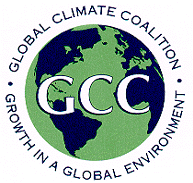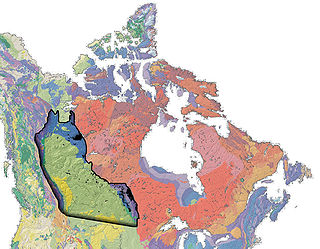This article needs additional citations for verification .(May 2024) |
The National Petroleum Council (NPC) is an American advisory committee representing oil and natural gas industry views to the United States Secretary of Energy.
This article needs additional citations for verification .(May 2024) |
The National Petroleum Council (NPC) is an American advisory committee representing oil and natural gas industry views to the United States Secretary of Energy.
The council was established in 1946 at the request of President Harry S. Truman to represent industry views on any matters relating to oil and natural gas. In 1977, its role was transferred to the new Department of Energy, and the council is now formally chartered as Federal Advisory Committee with private funding.
The NPC currently has 203 members, organized and appointed by the Secretary of Energy. Individual members serve without compensation as representatives of their industry as a whole, not as lobbyists for specific companies. The committee is organized to reflect the geographic extent of the oil and gas industry while also covering all industry sectors and representing both large and small companies.
| Category | No. of members |
|---|---|
Integrated, Refining and Oil & Gas Production Companies
| 70 |
| Midstream and Retail Oil & Gas Companies | 32 |
Support Service Companies
| 54 |
| Electric Companies and Other Large Consumers | 13 |
| Non-industry and Not-for-profit Members | 34 |
| Total | 203 |
The purpose of the NPC is "solely to advise, inform, and make recommendations to the U.S. Secretary of Energy with respect to any matter relating to oil and natural gas or to the oil and gas industries submitted to it or approved by the Secretary." [1] The NPC prepares publicly available reports which are the result of studies conducted at the bequest of the Secretary of Energy. Since its inception, the Council has prepared over 200 reports.

The Global Climate Coalition (GCC) (1989–2001) was an international lobbyist group of businesses that opposed action to reduce greenhouse gas emissions and engaged in climate change denial, publicly challenging the science behind global warming. The GCC was the largest industry group active in climate policy and the most prominent industry advocate in international climate negotiations. The GCC was involved in opposition to the Kyoto Protocol, and played a role in blocking ratification by the United States. The coalition knew it could not deny the scientific consensus, but sought to sow doubt over the scientific consensus on climate change and create manufactured controversy.
The American Petroleum Institute (API) is the largest U.S. trade association for the oil and natural gas industry. It claims to represent nearly 600 corporations involved in production, refinement, distribution, and many other aspects of the petroleum industry.

The Canadian Association of Petroleum Producers (CAPP), with its head office in Calgary, Alberta, is a lobby group that represents the upstream Canadian oil and natural gas industry. CAPP's members produce "90% of Canada's natural gas and crude oil" and "are an important part of a national industry with revenues of about $100 billion-a-year ."

The question of whether to drill for oil in the Arctic National Wildlife Refuge (ANWR) has been an ongoing political controversy in the United States since 1977. As of 2017, Republicans have attempted to allow drilling in ANWR almost fifty times, finally being successful with the passage of the Tax Cuts and Jobs Act of 2017.

Nigerian National Petroleum Corporation (NNPC) is a for profit oil company in Nigeria. Formerly a government-owned corporation, it was transformed from a corporation to a limited liability company in July 2022. NNPC Limited is the only entity licensed to operate in the country's petroleum industry. It partners with foreign oil companies to exploit Nigeria's fossil fuel resources.

The Western Canadian Sedimentary Basin (WCSB) underlies 1.4 million square kilometres (540,000 sq mi) of Western Canada including southwestern Manitoba, southern Saskatchewan, Alberta, northeastern British Columbia and the southwest corner of the Northwest Territories. This vast sedimentary basin consists of a massive wedge of sedimentary rock extending from the Rocky Mountains in the west to the Canadian Shield in the east. This wedge is about 6 kilometres (3.7 mi) thick under the Rocky Mountains, but thins to zero at its eastern margins. The WCSB contains one of the world's largest reserves of petroleum and natural gas and supplies much of the North American market, producing more than 450 million cubic metres per day of gas in 2000. It also has huge reserves of coal. Of the provinces and territories within the WCSB, Alberta has most of the oil and gas reserves and almost all of the oil sands.

The Ministry of Petroleum and Natural Gas (MOP&NG) is a ministry of the government of India responsible for the exploration, production, refining, distribution, marketing, import, export, and conservation of petroleum, natural gas, petroleum products, and liquefied natural gas in the country. The ministry is headed by the Cabinet Minister Hardeep Singh Puri. M. M. Kutty is the Secretary of the Ministry. Dharmedndra Pradhan serving as the minister from 26 May 2014 to 7 July 2021 is the longest serving minister till date.
J. Robinson (Robin) West is the founder and chairman of PFC Energy. He has advised chief executives of leading international oil and gas companies and national oil companies on corporate strategy, portfolio management, acquisitions, divestitures, and investor relations. Before founding PFC Energy in 1984, West served in the Reagan Administration as assistant secretary of the interior for policy, budget and administration (1981–83), with responsibility for U.S. offshore oil policy. Robin conceived and implemented the five-year outer continental shelf (OCS) leasing schedule and managed the $14 billion per year OCS policy, the largest non-financial auction in the world at that time.

The fossil fuels lobby includes paid representatives of corporations involved in the fossil fuel industry, as well as related industries like chemicals, plastics, aviation and other transportation. Because of their wealth and the importance of energy, transport and chemical industries to local, national and international economies, these lobbies have the capacity and money to attempt to have outsized influence on governmental policy. In particular, the lobbies have been known to obstruct policy related to environmental protection, environmental health and climate action.
Thomas W. Wälde, former United Nations (UN) Inter-regional Adviser on Petroleum and Mineral Legislation, was Professor & Jean-Monnet Chair at the Centre for Energy, Petroleum and Mineral Law and Policy (CEPMLP), Dundee.
The Energy Resources Conservation Board (ERCB) was an independent, quasi-judicial agency of the Government of Alberta. It regulated the safe, responsible, and efficient development of Alberta's energy resources: oil, natural gas, oil sands, coal, and pipelines. Led by eight Board members, the ERCB's team of engineers, geologists, technicians, economists, and other professionals served Albertans from thirteen locations across the province.

The Western Australian gas crisis was a major disruption to natural gas supply in Western Australia, caused by the rupture of a corroded pipeline and subsequent explosion at a processing plant on Varanus Island, off the state's north west coast on 3 June 2008. The plant, operated by Apache Energy, which normally supplied a third of the state's gas, was shut down for almost two months while a detailed engineering investigation and major repairs were carried out. Gas supply from the plant partially resumed in late August. By mid-October, gas production was running at two-thirds of normal capacity, with 85% of full output restored by December 2008.
Volkan Ş. Ediger is a Turkish scientist, writer and bureaucrat. After graduating from the Middle East Technical University, he earned his PhD from the Pennsylvania State University in 1986. His training is in geology, geochemistry, and palynology.
The Nigerian Gas Association is the professional body responsible for the promotion and protection of the interests of the gas industry in Nigeria.

The Interstate Oil and Gas Compact Commission (IOGCC),< formerly the Interstate Oil Compact Commission, is a United States organization, representing the governors of 31 member and seven associate states, that works to ensure the nation's oil and natural gas resources are conserved and utilized to their maximum potential while protecting health, safety and the environment.
The Directorate General of Hydrocarbon (DGH) is the Indian governmental regulatory body under the Ministry of Petroleum and Natural Gas.
Arun Kumar is an Indian civil servant who formerly served as Additional Secretary to Government of India, Secretary of Oil Industry Development Board and Executive Director of Petroleum Conservation Research Association. He also served as Board Director-Incharge of Indian Strategic Petroleum Reserves Limited, Member of the Management Advisory Committee of Bureau of Energy Efficiency and Member of the Governing council of Centre for High Technology.

M. A. Pathan was the chairman of the Indian Oil Corporation Ltd. from February 1997 to March 2002. He had been on the Indian Oil board since 1994 as the director-in-charge of marketing. He was also the chairman of the Petroleum Federation of India (PetroFed) from 1 April 2002 to 3 August 2003.

The Federal Ministry of Petroleum Resources is a part of the Federal Ministries of Nigeria that directs petroleum resources and its activities in Nigeria. The President, Bola Tinubu is the current minister of petroleum.

Oil and gas reserves denote discovered quantities of crude oil and natural gas that can be profitably produced/recovered from an approved development. Oil and gas reserves tied to approved operational plans filed on the day of reserves reporting are also sensitive to fluctuating global market pricing. The remaining resource estimates are likely sub-commercial and may still be under appraisal with the potential to be technically recoverable once commercially established. Natural gas is frequently associated with oil directly and gas reserves are commonly quoted in barrels of oil equivalent (BOE). Consequently, both oil and gas reserves, as well as resource estimates, follow the same reporting guidelines, and are referred to collectively hereinafter as oil & gas.